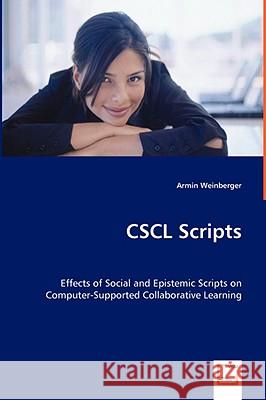CSCL Scripts - Effects of Social and Epistemic Scripts on Computer-Supported Collaborative Learning » książka
CSCL Scripts - Effects of Social and Epistemic Scripts on Computer-Supported Collaborative Learning
ISBN-13: 9783836447690 / Angielski / Miękka / 2008 / 260 str.
Most modern approaches to learning and instruction - and approaches to computer-supported collaborative learning (CSCL) in particular - foresee collaboration on complex problems to facilitate individual construction of multi-perspective, application-related knowledge. Learners are often overwhelmed by working on complex problems, however, and rather aim towards satisficing minimal requirements of a learning task. Therefore, CSCL needs to be scaffolded for learners to actually interact and work on problems together in a way, which is effectively facilitating individual knowledge construction. CSCL scripts pose an approach to directly facilitate specific processes of collaborative knowledge construction. The question under investigation here is, what kind of processes should be supported by such CSCL scripts, social or epistemic processes or both?
Most modern approaches to learning and instruction - and approaches to computer-supported collaborative learning (CSCL) in particular - foresee collaboration on complex problems to facilitate individual construction of multi-perspective, application-related knowledge. Learners are often overwhelmed by working on complex problems, however, and rather aim towards satisficing minimal requirements of a learning task. Therefore, CSCL needs to be scaffolded for learners to actually interact and work on problems together in a way, which is effectively facilitating individual knowledge construction. CSCL scripts pose an approach to directly facilitate specific processes of collaborative knowledge construction. The question under investigation here is, what kind of processes should be supported by such CSCL scripts, social or epistemic processes or both?











